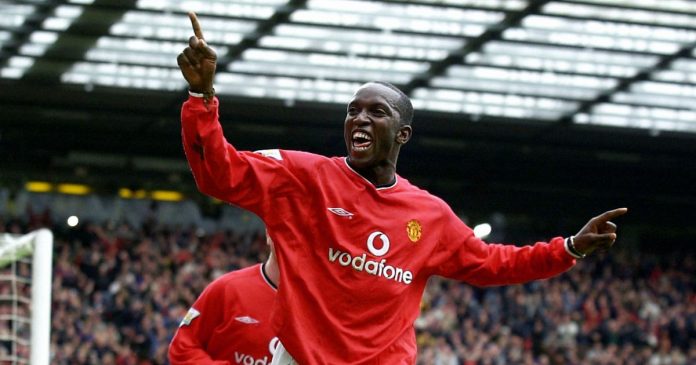Since news about Premier League’s proposal to play an extra round of matches from January 2011 leaked (a good thing – it’s better to start this debate early and give people (players, club management and fans) time to get used to the idea), the world of English Premier League football has gone to hell.
No, seriously. The weekend fixtures and the ACN 08 final may have distracted the fans but this is still very much a sore issue for fans in the UK (understandably, international fans are more open to this necessary evil).
Let’s look at the major arguments presented AGAINST this proposal and see if they have any merit, mmmmmmkk?
First, the proposal itself:
<ol
- An additional round of Premier League fixtures, extending the season to 39 games, from January 2011 (played during January, if that wasn’t clear already).
- Four clubs to travel to one of five host cities, with two games taking place in each venue over a weekend (10 matches, 20 teams).
- Cities would bid for the right to become a host, not for individual matches.
- Points earned from the games would count towards the final Premier League table.
Did we miss anything? Apart from the obvious (it’s ALL about the MONEY)? No? Ok, now to the objections:
1. The Fans Get Shafted
The argument runs as follows – those fans who attend club games religiously will be unable to attend these games and that is unfair – their club is being taken away from them.
You know what it sounds like? It sounds like a bunch of 5-year olds bitching about how they now have to share their toys with their new neighbours – never mind that the sharing will last a weekend and that they’ll get to keep the toy for most of the year.
Let me emphasize this – these are extra games. This isn’t the Carling Cup final, this isn’t the Community Shield, this is not the traditional home or away fixture that you’re used to. This is an EXTRA game. Think of it as creative juggling to find space for more time for your neighbours – the people whose money made it possible to buy Torres and Rooney, not to mention half the Chelsea squad.
Are the local fans more important simply because they live near the grounds and get to visit more matches? If so, football is far more tribal and racist than I understood it to be.
Quite frankly, the people against this proposal who cite harm to the fans are just afraid of change. Platini’s stance has always been to return the game to its roots and I’m not with him on this one, despite the good work that he’s done for Uefa so far. Him and Sepp Blatter have always been traditionalists, but sometimes resisting change just because you don’t want to share is quite stupid.
I’ve heard quite a few arguments that fans living abroad are not as important as fans living at home. Sure, local fans are the ones who lend to the atmosphere and the support during matches, their lives are associated with their clubs so yes, they are more important for the club.
But think about the future and think about the future of your club. As businessmen figure out how to leverage sports for financial profit there is a massive scramble for getting into sports (you’ve seen it with American sports, with the IPL in India and the great Premier League takeover). Football is massive, and the English Premier League, in terms of global audience, is the number one football league in the world. We need to accept that and deal with that reality. As such, fans who live abroad gain a measure of importance as well – not directly but in terms of bringing in revenues for the club that in turn enables them to compete better on the pitch.
The only reason – THE ONLY REASON – local fans are considered more important is because of geography. It’s not the strength of their support, not the color of their skin (UK prides itself as a tolerant society) and not the size of their bank accounts.
If geography is the only reason, don’t you think that the hundreds of thousands (if not millions) of fans around the world deserve a weekend or two every year to see their own team? These are people who would gladly buy season tickets and what not if they were able to attend games – it’s not a question of desire or commitment, it’s a question of access.
This new proposal gives the global fans that access, and in return asks the local fans to share for one weekend.
The real fear, and I understand that, is that this is just the beginning and pretty soon the Premier League will be played more around the world instead of in the UK. I doubt that strongly and for several reasons.
For starters, the FA won’t allow it. And already you’re hearing that Europe is not an ideal destination because of opposition from the local FAs, and as the game of football spreads more and more you’ll find that very few, if any, locations will allow the Premier League to supplant their domestic football scene. If anything, the commercial value of the Premier League will spur on local businessmen in India and other countries to invest more in their local football scene and thus accelerate the growth of football in those areas.
The local fans should relax – their clubs are not being taken away from them. The soul of your club is intact as long as the right people are in charge. That’s more important than where Liverpool are playing for one week out of 52.
2. Fixture Congestion and Player Fatigue
Considering that this extra round of games is due to be played in January, it raises serious concerns about how clubs will be able to fit this into their schedules and this will undoubtedly be one of the major talking points in the next year.
Soccerlens reader (and occasional contributor) BD Connell shared several ways the new fixtures could be accomodated – while any cooperation from FIFA and Uefa cannot be directly expected, it’s important to note that this is ONE weekend worth of fixtures and it can be accomodated somehow. It might mean another week where clubs play two games instead of just one on the weekend, but it’s doable.
The traveling will have an impact, yes, but as I’ve said before (and as other people have pointed out), one fixture does not change things. The English football scene is extremely congested as it is, and they need a major revamp to ensure that players get adequate rest and therefore are protected from injuries and are fitter for the end of the season run-in.
Another idea to combat player fatigue is to employ more rotation and use bigger squads – and if this means that we see more young players playing in the Premier League, that’s much better for the game, right?
Also, before anyone considers that international games and domestic cup games would be affected, here’s what the FA has to say – to quote the Guardian article:
“There are many areas where the Premier League can help out – fixture lists, releasing players, the FA Cup, the World Cup bid – and we are in a position to make demands on them.”
As long as the Premier League does more to help the national team and the domestic cup competitions, why not?
No Demand For Unattractive Fixtures
This one has pretty much been sidestepped by the idea that Cities will bid for the right to be a host, and not for individual fixtures. It takes away the likely scenario that teams will bid high for matches involving the top 4 and low for other games. Now every host city will bid according to how much they think they can benefit from bringing Premier League football into town, and you’re likely to see people make smart business decisions and use creative means to get people to attend matches.
There’s a concern that matches involved mid-table teams (for example, Portsmouth v Middlesbrough) will be played out to empty stadiums. I seriously doubt this, and I also doubt that the absence of quality in some of these matches will turn people away. The magic of this proposal, from the point of view of the global fan, is that it gives them the chance to watch the Premier League.
If there was a match taking place in India or China or Middle East, I’d hop over and go no matter who was playing there. For most global fans it will be a unique experience and that will overcome the perceived lack of interest.
You can also expect this type of globalisation to grow the fanbase of all 20 clubs – the smaller clubs will benefit as well and Richard Scudamore has been quick to point out that the league are making a united decision instead of going at it alone.
And have I already mentioned how this sort of globalisation will spur the development of local football wherever these guys go?
The demand will be huge, I assure you.
4. The Draw Will Be Unfair
This is the most genuine point of contention and one that the Premier League will have to sort out as fairly as possible. There are a couple of ways to do it (some suggest that sides will be seeded to avoid pairing up the likes of Arsenal and United against each other) but let’s look at what the clubs themselves think.
Remember, this is a proposal that has been agreed, in broad principle if not in specifics, by all 20 clubs in the Premier League (so far a few players and managers have spoken against it but the owners are generally on the side of the PL – or are playing along). More importantly, the only way this proposal CAN go ahead is with the agreement of all 20 clubs. It isn’t something that’s being forced on them (although you can imagine a certain amount of arm-twisting going on) and at the end of the day, its the clubs that will take the risk on themselves.
No, it’s not going to be fair (someone will play Derby thrice and someone will play Manchester United thrice) – but the benefits in this case coupled with the extra measures the organisers are taking to make fixtures as fair as possible (neutral ground, potentially neutral support, playing the round at the same time for all teams) greatly outweigh the risks.
It’s easy for critics to create hypothetical situations where clubs get relegated or lose the title because of that 39th game. To be fair, the what if game can be played on every single point dropped, on every single goal conceded. It doesn’t stop unless you force yourself to stop, and even in today’s ‘fair’ environment you have people bitching about unfair transfers and poor refereeing decisions that cost them points.
It’ll be more of the same, and it’s not going to make a damned difference because over the course of a season if you’re not good enough to grab a couple of extra points from somewhere and you really have to rely on that 39th game, you’d better win it, or you’ve lost the competition and there’s no use in complaining about how you didn’t live up to what was needed from you.
It’s more the ‘perception’ of fairness than anything else here.
So now that we have dealt with the complaints, let’s look at a possible way to make the draw work.
Potential Structure For The 39th Round
1. Take the final position that teams end in the previous season (add promoted teams to the 18-20 spots according to their rank in the Championship) and use that to seed teams from 1-20.
2. Break up teams into groups of 4 – 5 teams in each group, split like this:
Group A: Teams 1 to 5
Group B: Teams 6 to 10
Group C: Teams 11 to 15
Group D: Teams 15 to 20
3. Pair groups A and B together and draw fixtures (potential fixtures: #2 v #9, #4 v #`10, #1 v #7 and so on).
4. Pair groups C and D together draw fixtures (as above).
This ensures a more equal competition than pairing Group A with Group C and pairing Group B with Group D (although that’s also possible).
Once the fixtures are decided, they can be accorded to different venues (don’t know if there will be a draw for this but I suspect that this will happen).
There are other ways to do this as well – mainly, anything that makes the draw as fair as possible works. A neutral location makes it harder for the home team to gain any advantage and by pairing tough teams against each other (and weak against each other) you make it harder for the top teams to come away with easy points and you allow weaker teams to get something from the game.
It’s not so hard to make it work once you stop resisting change for the sake of resisting change and view the proposal’s pros and cons.
There’s always the argument that this is just a further step in killing football’s soul. That bird was killed when people decided that sports = money and started pumping money into football. That ideal image of football that you have (and that some journalists love to parade out to pander to public opinion)? It’s broken, and you can’t go back to it just like you can’t give up technology and go back to living in medieval times.
The only thing we CAN do is to embrace the damage and ensure that we move forward as carefully as possible and protect the game as much as we can.
Further Reading:
200 Percent – Has The Premier League Jumped The Shark?
EPL Talk – Why It’s Good For The Game
Should Premier League Clubs Play An Extra Fixture Overseas Every Season?
Make your voice heard in the poll below:
Add Sportslens to your Google News Feed!






